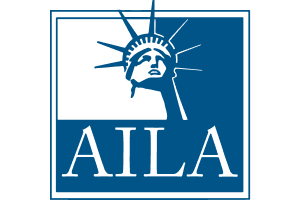Clinical Waiver Programs
Health and Human Services: (HHS)
For many years the Department of Health and Human Services has made recommendations for physicians engaged in research. In an exciting development, in December 2002, rules were published allowing for the Department of Health and Human Services to recommend waivers for clinicians based on service in federally designated underserved areas. The program is limited to primary care physicians. Not only must the physician intend to work as a primary care doctor, but he or she must submit the waiver application within 12 months of the completion of a primary care residency program (exception is made for 2003, allowing submission to October 2003).
The basic requirements for submission are that the physician be working as a primary care physician (family practice, general internal medicine, Ob/Gyn, general pediatrics or general psychiatry) engaged in outpatient services for a period of three years on an H-1B visa for at least 40 hours per week. The facility must treat all patients regardless of their ability to pay, must accept Medicare S-CHIP assignment, and use of a sliding scale. The contract may not include a non-compete clause. The application requires a support letter from the State Health Department. As noted, the physician must have completed his or her residency program within one year of submission of the application. The employer must document recruitment of U.S. workers.
Appalachian Regional Commission:
As the Health and Human Services is the newest agency to which the waiver application can be submitted, the ARC is the oldest such agency. The ARC may recommend waivers for certain counties in the following states:
Alabama, Georgia, Kentucky , Maryland, Mississippi, New York, North Carolina, Ohio, Pennsylvania, South Carolina, Tennessee, Virginia, and West Virginia.
Like the HHS, the ARC limits waivers to primary care practitioners which include general family practice, general internal medicine, Ob/Gyn, general pediatrics, or general psychiatry. Also, like the HHS, the ARC program requires recent recruitment. ARC programs are administered through the governor’s office of the state where the position will be filed. There are differences as to standards from state to state regarding issues like which range of primary care services are supported and the level of recruitment that is required. The ARC requires that a liquidated damages clause requiring the alien to pay to the employer $250,000 for breach of contract be part of the contract.
Other ARC requirements include requiring that the facility be Medicare and Medicaid certified and accept patients regardless of ability to pay and that the percentage of Medicare patients be not less than 80% of the percentage in the state and the percentage of Medicaid patients be 80% as well. ARC also will not recommend waivers for physicians who have been in violation of status for more than 180 days. However, for those in duration of status not to be triggered until an immigration judge makes a decision of status violation.
Delta Regional Commission:
DRC is a relatively new federal agency similar in many ways to the ARC. Like the ARC, DRC requires that the physician work as a primary care physician in a federally designated area. It also requires that the employer engage in good faith recruitment prior to submission of the application. Currently, DRC operates in certain parts of the following states: Mississippi, Louisiana, Alabama, Arkansas, Tennessee, Kentucky, Missouri, and Illinois. (See www.dra.gov). Although there is no liquidated damages requirement in the contract, neither is a non-compete clause permitted.
Conrad State 30 Program:
The Conrad State 30 program is a very important waiver option for the non-primary care physician since, unlike the HHS, the ARC, and the DRC individual states may, if they chose, make recommendations for any type of physician including specialty and sub-sepcialty. Increasingly, many are choosing to do so. This trend will hopefully continue, since theoretically most primary care labor cases could be submitted to HHS with state support. Again, basic requirements apply. The position must be for 40 hours per week in a federally designated underserved area. The number of waivers, however, are statutorily limited to 30 per year per state. The state programs vary widely as per level of recruitment required, type of petitions supported and type of application required.
Veterans Administration:
The VA is the only federal program that, like the Conrad State 30 program, permits waivers for non-primary care physicians. Like most other programs, recruitment is required. The waiver may be granted upon appointment with only 5/8 service at the VA hospital and 3/8 at the affiliated university. However, physicians should be concerned in such a scenario that they satisfy the obligation of section 214(l) for a period of three years in H-1B status. The VA is precluded from recommending waivers for those who will engage in time limited employment such as residency and fellowship positions.


